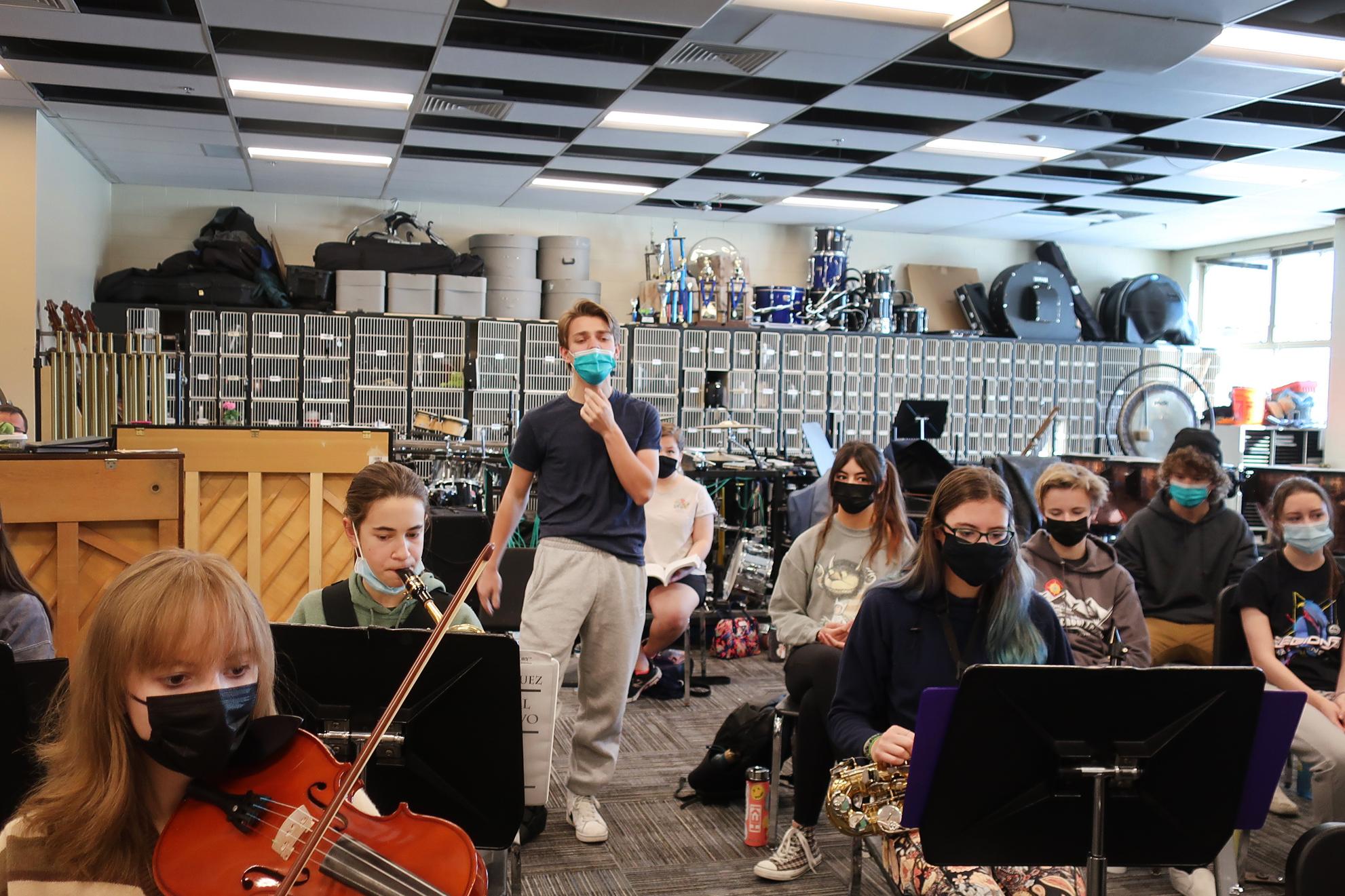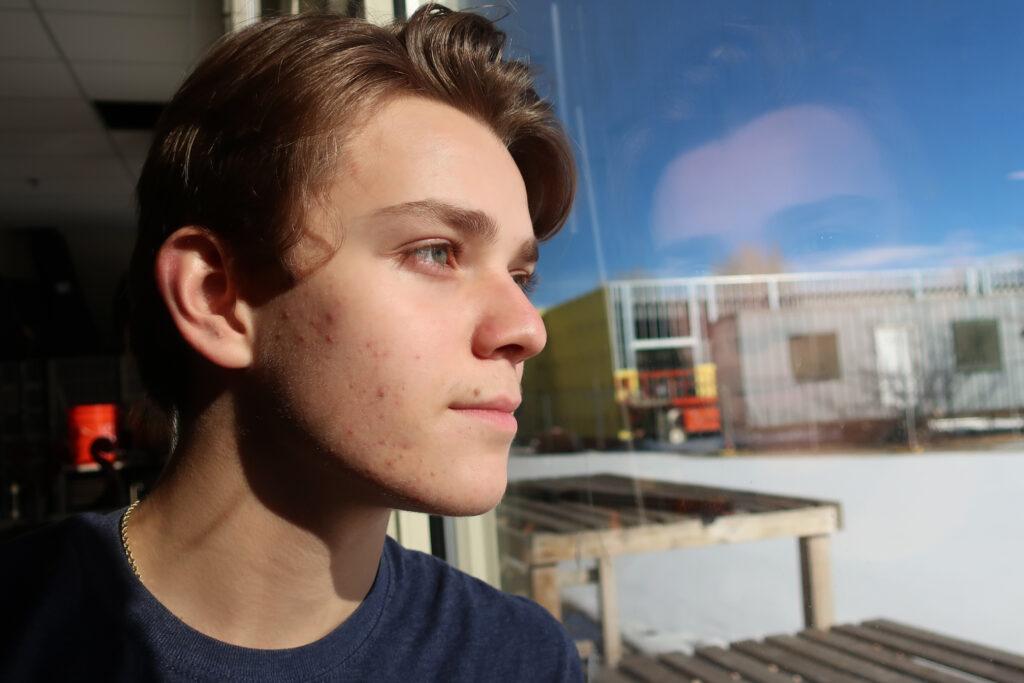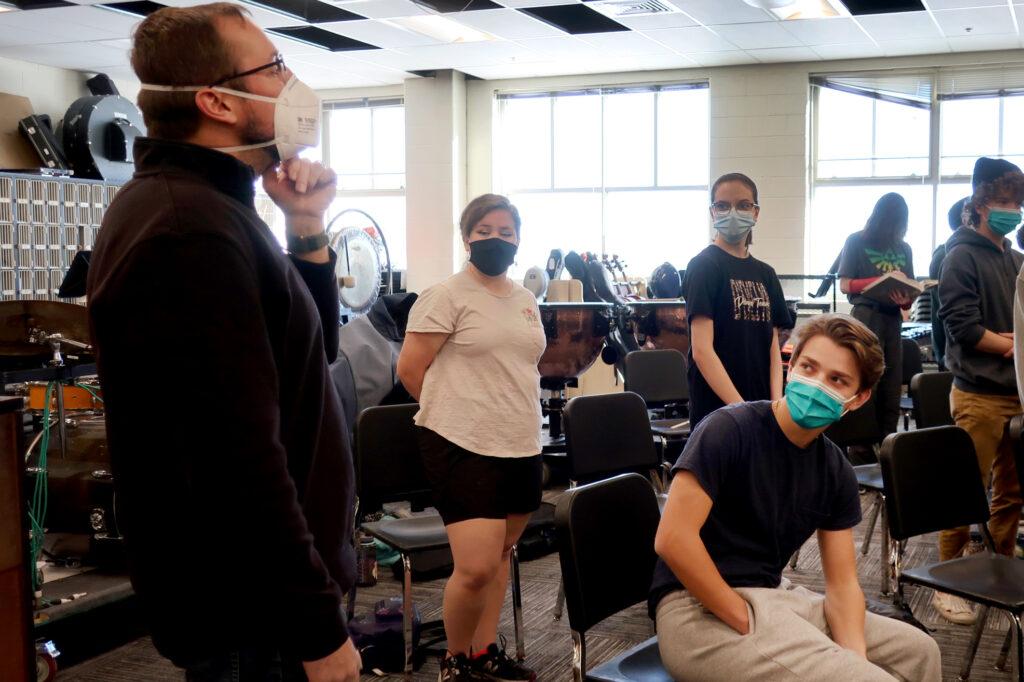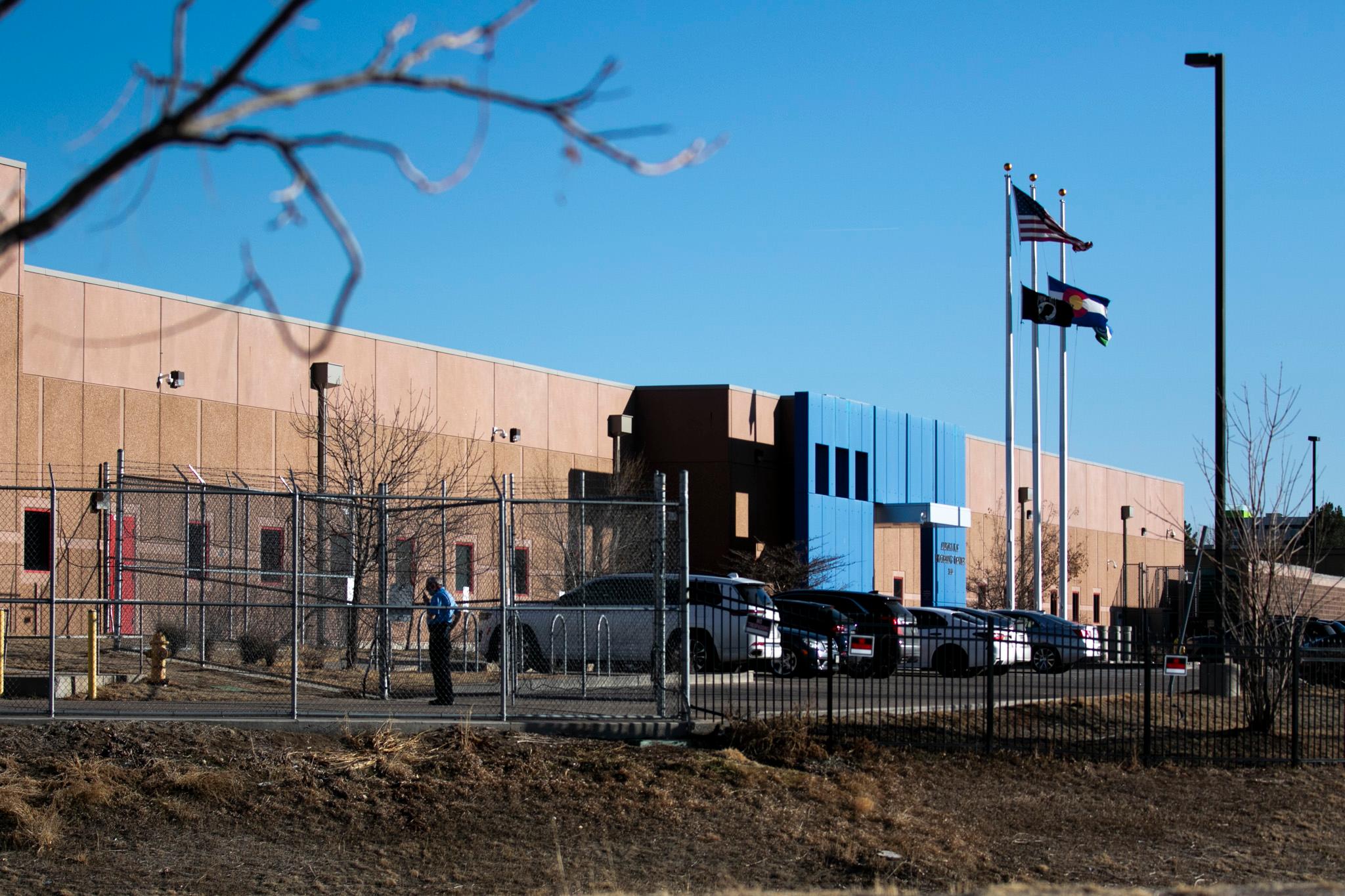
It was the day before Friday the 13th in March 2020, and Levi Randolph, 16, wasn’t feeling well.
“I actually had a violin concert that night and I was like, ‘I’ll just go, I’m just coughing. I’m sure it’s just a cold.’ “ he said. “And it turned out it was COVID, so it’s a good thing I didn’t go.”
He was in eighth grade. He was told he should quarantine for 10 whole days alone. Then. he’d rejoin his friends at school.
Schools shut down. Nearly two years later, on Christmas Day 2021, Randolph, of Indian Hills, tested positive again. He was at his grandparent’s house when he got the results.
“They were like, you can’t be here. You gotta go home.”
It was back into quarantine for the umpteenth time over the past two years. Randolph’s older brother was home from college and he had to quarantine as well.
So, they decided to write a song about what the two pandemic years have been like for teenagers — the isolation, the inability to develop social skills, and what adults looked like through the eyes of a young person. All the feelings young people had about what was going on, they were just bottled up.
“Let's get our emotions out there and into this work so that we don't have to hold it anymore,” he said. “I feel like it's a really good perspective for adults to see how kids my age are feeling in this whole situation.”
The song, produced on an audio interface, a Scarlett 2i2, which allows the user to record all the musical instruments in studio quality. He’s been playing piano since he was 5 but Randolph had never produced music before.
“I just need time. To give back my life. They said 10 days. And everything would be the same. Stop closing doors. Can’t take much more.”
That’s a repeating refrain in the song the brothers wrote in three days: 10 days. Remember?
“They said 10 days that I had to be alone, but it turned out it was two years,” said Randolph.
The song is called OST — Omicron Standard Time — that slow, warped sense of time many of us know, that’s especially worse when one is quarantined with COVID-19.
“I get up, I got down. Every day the same old sound. Wish I could run. From the here and now.”
Life at home, on a screen, with only your parents as company, became monotonous pretty quick for a lot of teenagers.
“Yeah, I cleaned my room, I did stuff that normal teenagers don’t do. It becomes sort of rhythmic. Like you're getting up, you're just doing school and then you're doing your homework and going to bed.”
Randolph started his freshman year in high school in a hybrid model, where only half the school was in the building at a time. Most of his friends were assigned to the other day.
“It felt kind of empty when you came, like, the halls were empty. It didn’t feel populated. And then when you're at home, you have no one to talk to.”
This isolation was perhaps the hardest for teens. His grandparents stayed in their house for 18 months, and he couldn’t go see them. He didn’t see as much of his extended family. Randolph said he knows medical professionals were just trying to keep everyone safe. But he wonders if there could have been more awareness of teenagers' particular developmental stage — they are hardwired to socialize.
“It was so hard. It was really sad to be alone.”
“Wish I could run away from the here and now. Time is spent trying to change what I am.”
In the literal sense, Randolph explains the lyric means it is dangerous to other people if you have COVID-19 so you want to change and get better. In the metaphorical sense, especially for teens with masks on, it was really difficult to understand people’s emotions.
The song reflects in many ways how teenagers develop — being around others. Parts of their brains aren’t fully developed so sometimes they say or do wrong or inappropriate or awkward things, and their peers put them in check by reacting. That ability was frozen for a couple of years.
“Being alone has kind of like, you don't know what's right or wrong because you don't have anyone else's opinions. … you're just kind of shooting in the dark for certain things,” he said.
“With masks on and all this quarantining and everything, it’s really difficult to understand people’s emotions to you. And so a lot of the time you just try to change who you are to be more suited to what you think people will like … I think it makes it much harder in this whole COVID setting to understand what people are thinking.”

“All these people yelling desperate to save face. Why do I keep cryin’? Why is everybody lyin’? I just need to ‘scape.”
Watching the behavior of adults fighting over masks, over vaccines, over whether schools should be opened or closed, making people feel bad if they are wearing a mask was disturbing to many young people, Randolph said. To him, it looked ridiculous in a time of crisis.
“As a kid, you're watching this, all this fighting, you're like, it doesn't matter. We all should just be trying to love each other and get through this together rather than be against each other on different opinions on what is right.”
Randolph attended a Jefferson County school board meeting earlier this year, just when omicron was spiking and teachers were getting sick. He thought officials would send kids back home to learn.
“I just didn’t want that to happen.”
So, he sang his song to board members.
“Hold on to you loved ones, ‘cause they’ll be there when it’s all done. Just don’t be scared. (The ones that love you hold on.) Danger’s there (just hold your breath and be strong.) ‘Spite the fear (just let them join in the fun.) The end is near.”
Randolph reflects on what he’s lost and gained over the past two years. He “lost” his freshman year; his brother and sister “lost” their senior year. The regular rituals and rites of passage with each distinct high school year were lost for many.
“It feels like the year didn’t exist … my freshman year, like, I'll look back on and be like, when did that happen? And, and it's like, it happened that year where I was at home.”
Now Randolph knows himself better and knows his family better, but he’s also experienced a different side of loss that he’d never felt before.
“Before COVID, I never would have dreamed or thought that I could be so isolated from the rest of the world. So, I definitely have gained a sense of loss and what’s that like. I think I can appreciate things a little better.”
“I want my life to be what it was before…”
Randolph hopes masks and isolation are a thing of the past instead of being the “new normal.”
He’s hopeful for the future.
With his newfound music production skills he learned during the pandemic, after high school, he wants to study arts, film production, music production, or musical theater. Next week he stars as Race Higgins in the D’Evelyn Jr./Sr. High production of “Newsies,” which is about a newspaper strike during the depression.
On a recent Saturday morning rehearsal at school, Randolph — even with a cast on his leg and a mask on his face — is hamming it up during a solo. He’s surrounded by friends. The kids sing and play and josh around. They’re carefree, laughing, together.










